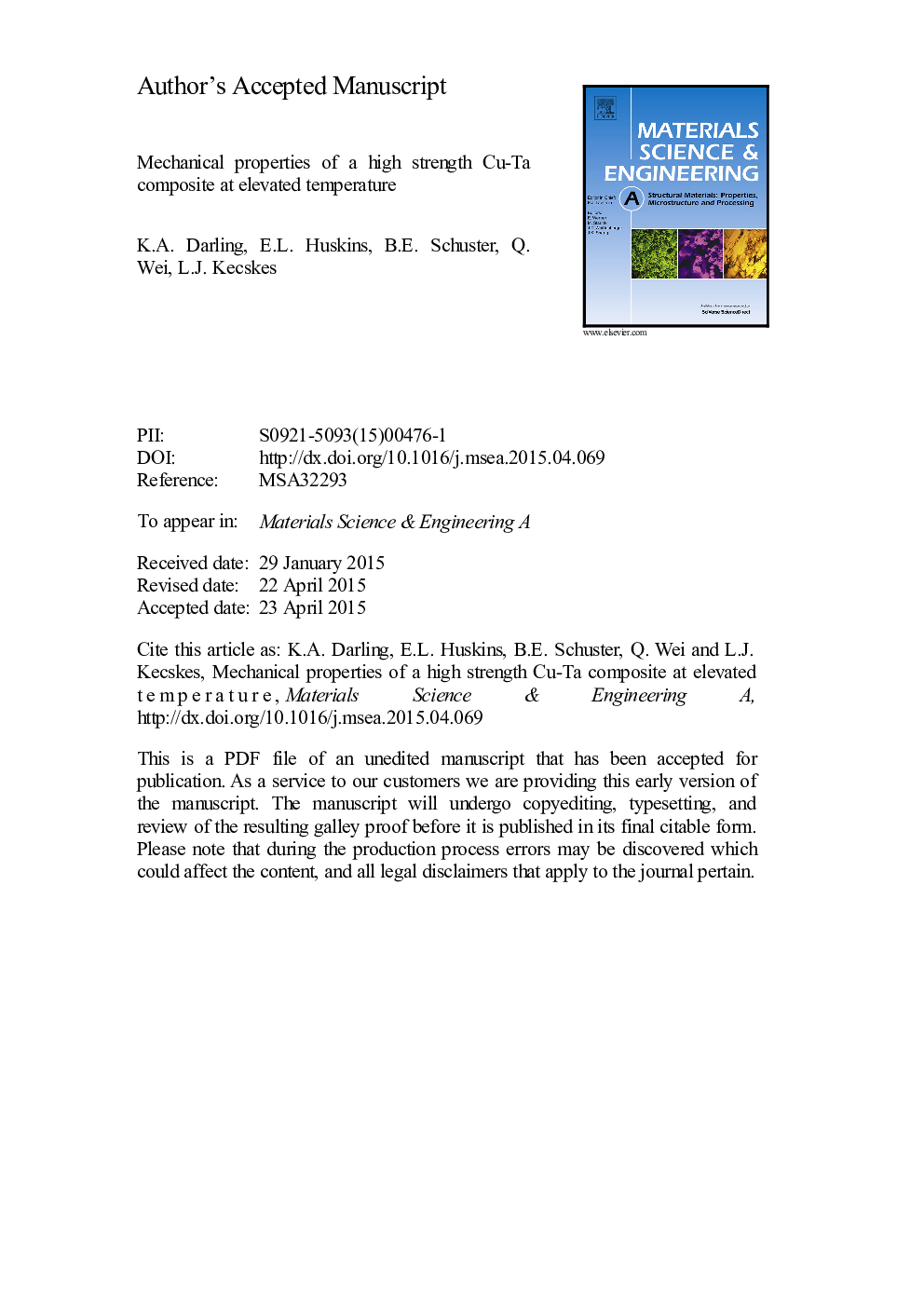| Article ID | Journal | Published Year | Pages | File Type |
|---|---|---|---|---|
| 7978136 | Materials Science and Engineering: A | 2015 | 21 Pages |
Abstract
Nominally pure nanocrystalline metals do not remain nanostructured under extreme conditions of intense heating and or deformation preventing the study of their physical response under such conditions. Here we present the coupled effect of temperature and strain rate on the mechanical response of a thermally stabilized nanocrystalline Cu alloyed with 10 at% Ta. Compressive mechanical testing was performed from 24 to 1000 °C and strain rates ranging from quasi-static (10â1 sâ1) to dynamic (104 sâ1) rates. The response of this material exhibits a maximum quasi-static yield stress of 1.05 GPa at room temperature and an approximate yield stress of 0.5 GPa at 600 °C, with an apparently linear temperature response. In contrast to pure coarse-grained Cu, our assessment indicates that this Cu-based composite derives its properties from a combination of very small Cu-rich grains and well-dispersed Ta clusters and nanometer (<10 nm) size Ta precipitates. Such microstructural features translate into a strong resistance to coarsening even after extensive exposure to elevated temperatures and high rates of deformation.
Related Topics
Physical Sciences and Engineering
Materials Science
Materials Science (General)
Authors
K.A. Darling, E.L. Huskins, B.E. Schuster, Q. Wei, L.J. Kecskes,
